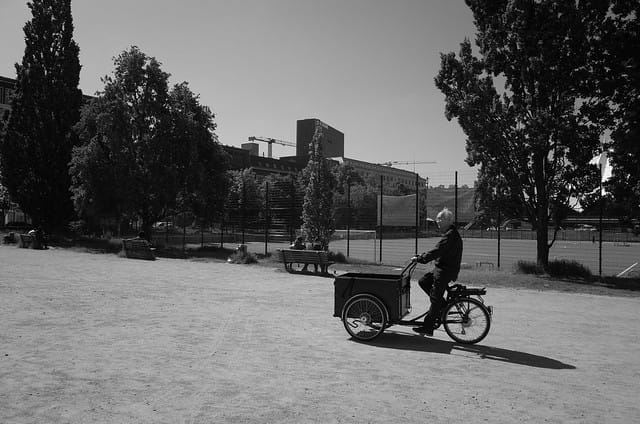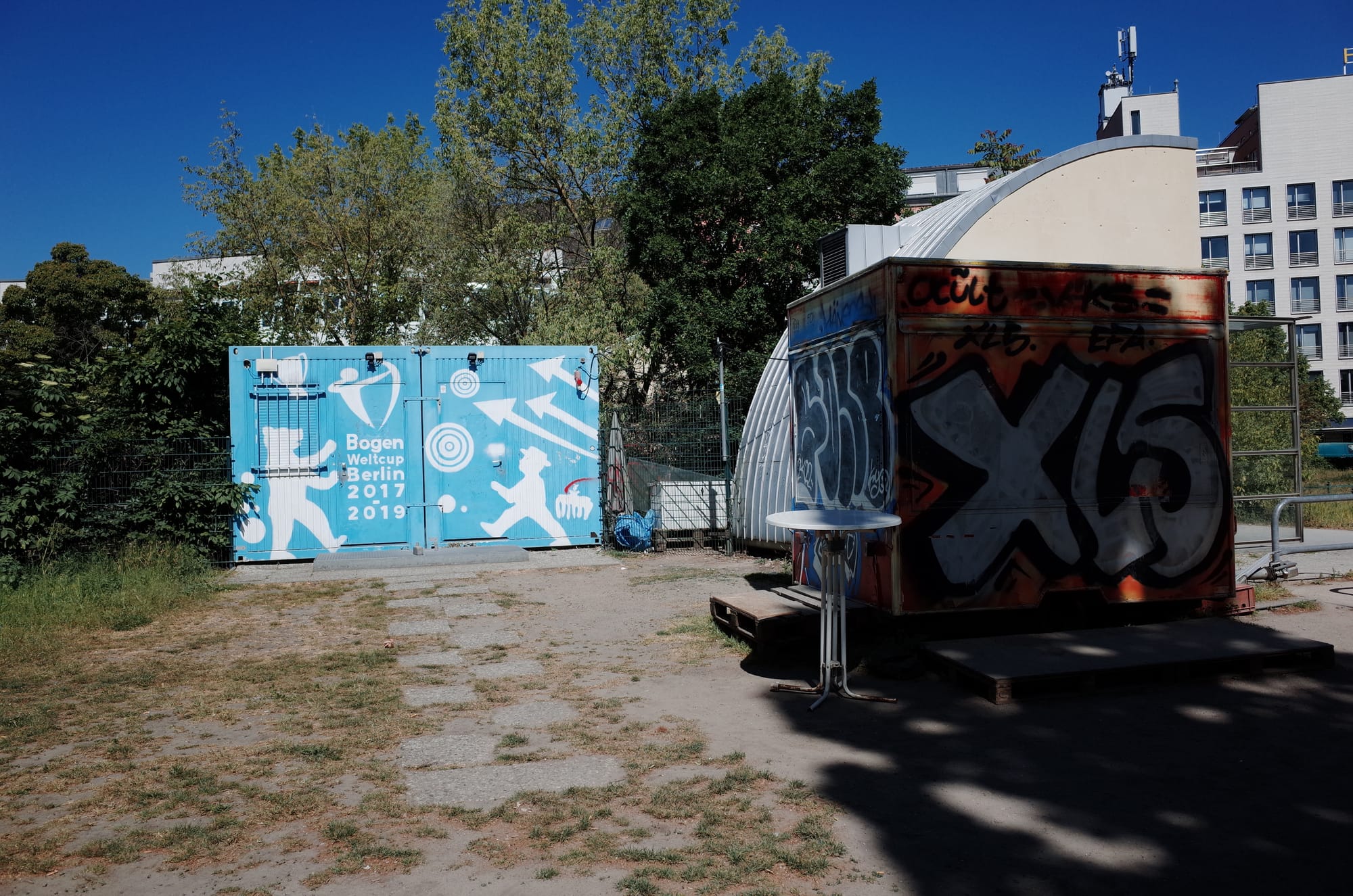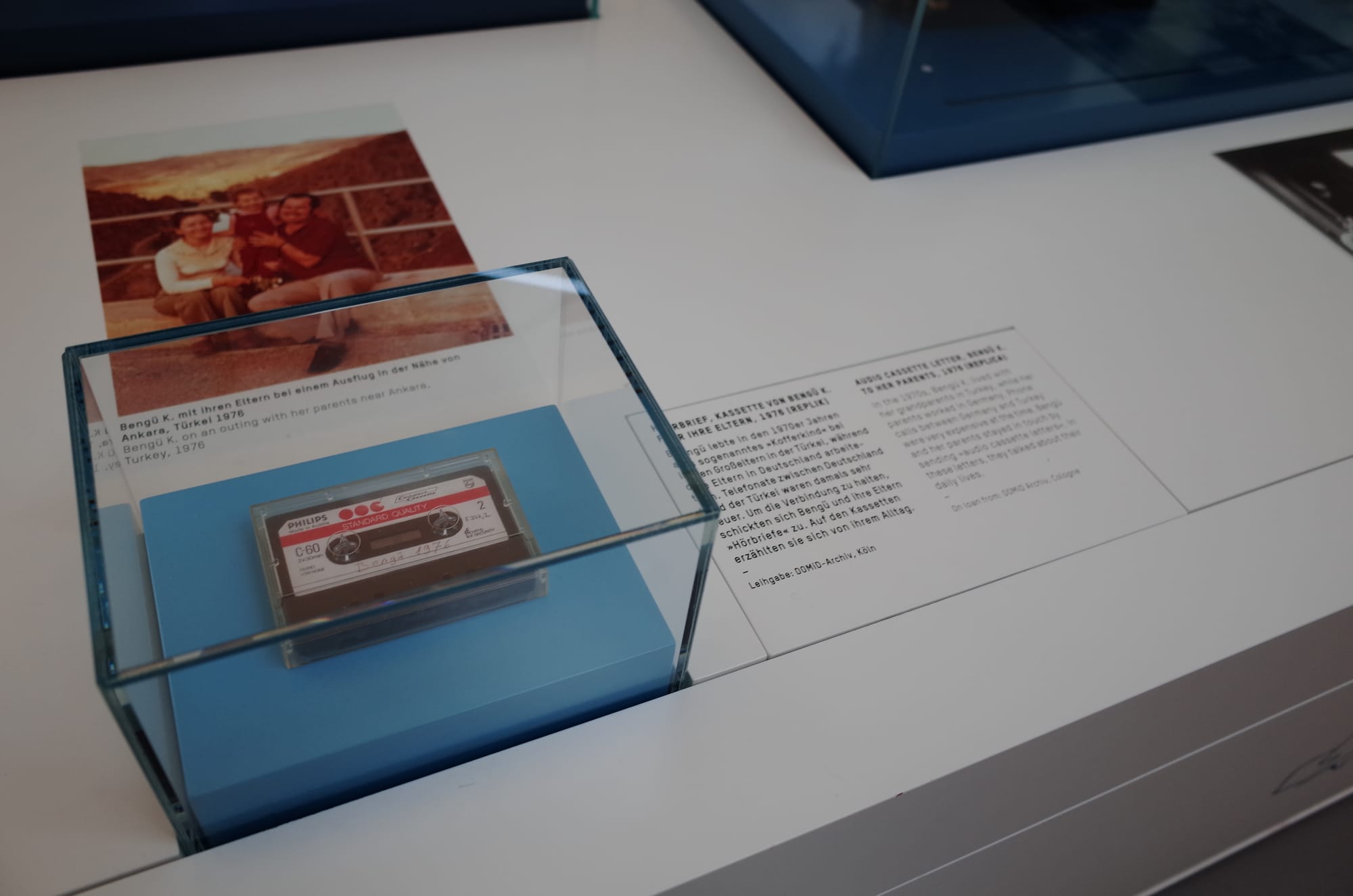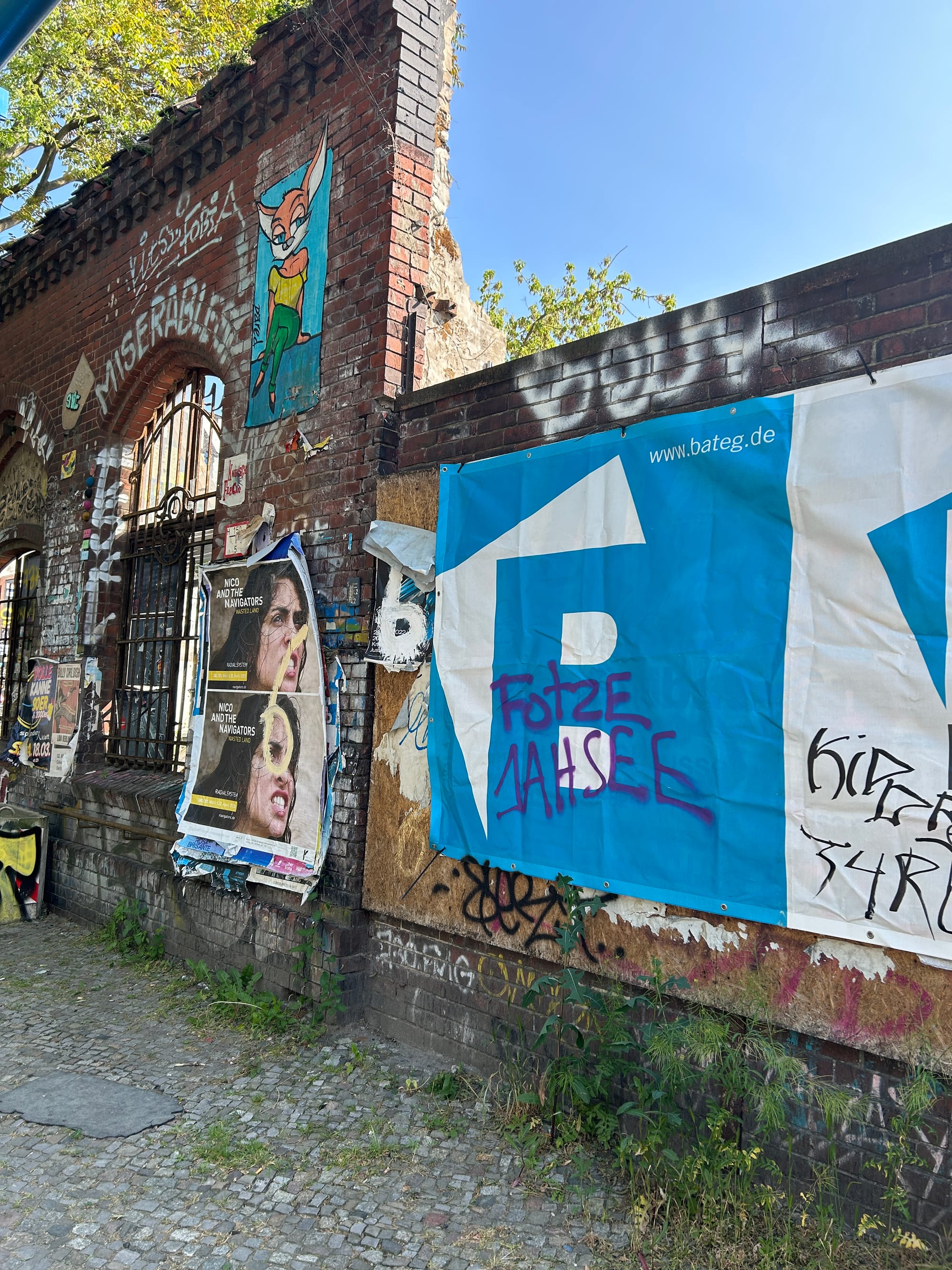
Regular readers will know that I am a big fan of learning to notice.
It’s a skill that we can all develop and brings with it a wonderful ability to truly see what is happening around us. I often say that being a good leader means learning how to notice: to pay attention; to study; to see what’s really happening; to go and see for yourself. I’ve done a video and post on that topic here.
So, when I travel, I notice things.
I take lots of photos of things that interest me. Throughout this post are some select photos from a family trip to Berlin. We’ll get to why this is important in a minute.
And BTW – if any of my readers are in Germany (and I know a few are), I absolutely fell in love with your country. I’m even learning German so I can do more work there.

The study of others is really a window into ourselves - ethnography
Whilst studying my Media Science degree, back in the 90’s, it was commonly held in the social science circles that only one of the traditional social sciences was truly about other people, and that was Ethnography: the study of other people and how they live in their world.
The rest, Psychology, Communication, Sociology et al, were considered the study of ourselves – and how we fit into the world.
My Communication lecturer had a salient point of view on this topic.
“How could the study of other people be about anything other than ourselves?”
In other words, what we choose to notice and study is a reflection of ourselves.
The judgments we make, what we chose to note down, what we decide is happening – are all reflections of ourselves. We see through our own eyes, we have biases, beliefs, opinions, ideas, thoughts, history and a frame that we tend to apply.
It's really hard to remain objective in all situations as a human being.
In reality, ethnography is really a study of ourselves (“The Ethnographic Self,” 2023) – how we view, see, notice and perceive other people and the world around us.
Business is the same
The same is true in our business worlds.
What we choose to notice, the judgments we make and the conclusions we draw, are biassed by our own experiences, upbringing, beliefs, current interests, pressures, goals and more.
When it comes to noticing what is happening around you, at work or in your own life, it’s really a study of ourselves.
When we reflect on what we notice, we reveal a lot about ourselves. That can be enlightening to say the least.
- What do we choose to notice?
- What do we pay attention to?
- What frame do we put around what we notice?
- What goes through our minds when we notice things?
I am a fully fledged people watcher and have been since I was a young kid.
I remember extremely vividly studying a man in a pub, in Scotland. We were on holiday as a family and I observed his lonely expression, the way he picked at the crisps he’d bought, the way he hunched his shoulders and avoided eye contact.
I concluded he was lonely and milling something over – I was about 5 at the time. It set me on a path to notice how people move and interact. Anyway, I digress.
By developing the skill of noticing I’ve been able to develop a strong ability to read a room, spot non-verbal tells, see weak signals (signals of a future unfolding) and dig deep to understand what’s really going on in the workplace – to cut to the heart of the issue. I don’t have many skills but this one I do consider a superpower.
However, I know deep-inside that what I choose to notice says more about me than what I’m seeing – and it’s a wonderful way of testing my own awareness, biases, judgments and beliefs.
- Am I too narrow minded?
- Do I make snap judgments too soon?
- Do I stereotype too quickly?
- Are there patterns in what I notice (is it people, places, environment etc)?
- What do I not to notice?
- And why am I asking so many questions?
I’m a keen photographer and filmmaker and always have my camera with me. Always. It’s part of my everyday carry. I use my camera to capture almost everything I can – and my notebook to capture what I cannot (or should not) capture with my camera.

When I review my photos after a trip or commute, I aim to reflect and understand why I took that shot, or what was interesting, or whether there are patterns that emerge.
I capture these “field note reflections” in a notebook for learning, future reference and because I’m a curation geek. I sometimes take photos of beautiful things to improve my photographic skills, but I exclude those from reflection – and post them to IG to chase likes instead.
Noticing Berlin
On a recent trip to Berlin, I reflected that I was taking photos around three core themes (excluding the photos of my family posing).
Weak signals about how we work in cities.
My on-going study of weak signals naturally means I try to spot them. Weak signal are little signs, signals and actions that are the future trends unfolding in the now.
As you see more of these signals, they natural move from being weak to being strong - and they become norms, standards and every day things.
For example, maybe 10 years ago, I noticed on video calls that a few people were bringing nature into their home work environment. A few plants here, a few there.
This was a weak signal, as over time more and more people brought nature into their home work environment for the benefits it brings and a reconnection to our natural world.
It's now very common to see plants, natural materials and garden offices.
The contrast between historical and modern life
I love history and old buildings – I saw many in Berlin, but I also appreciate that modern work often needs modern amenities. This juxtaposition of old and new interests me.

I’m also pondering what would happen to our office buildings if the remote work movement continues. As more companies reduce their office real-estate it frees up buildings for other purposes.
I’m looking for weak signals as to what that may turn into: community centres, co-working spaces, yoga rooms, museums and art galleries?
Anything to do with publishing / communication.
I've always been a keen publisher so this field of work has deep interest for me.
I’ve been doing a lot of research about how publishing fits into corporate communications, and why all managers and leaders should have a communication plan.
The ability to distribute has power – and this is something many managers and leaders don’t understand. They send a powerpoint via email, or do an all-hands session and consider their vision/strategy “communicated”. It wasn't.






Various photos of communication and publishing from Berlin streets, and the Technology Museum
There are many lessons we can learn from publishing that help leaders communicate.
It’s not enough to rely on the grapevine – this tends to only work for gossip and vastly interesting news – not company announcements and strategy. If you own distribution you have publishing power.
Noticing changes, and people notice different things
As my role changes or my experience grows, I notice different things.
At all times though, I am typically, at least at work, focussed on how people work, move and communicate within the business. There is always lots to learn, some weak signals to spot and plenty of levers to pull for change, once you truly notice what’s happening.
What I notice will not be the same as what you notice. What you notice will not be the same as Pete in Marketing.
Some people are better at noticing than others. Some people merely pay more attention. Some people notice but close their mind to what they’re seeing.
Some people pay attention AND are open to what the world offers.

Noticing is a behaviour that can be developed. It is a behaviour that sets people apart in the workplace.
It’s a behaviour that gives people the super power of reading body language, reading a room and sensing how messages are landing. It’s a behaviour that allows one person in a meeting to see the solution to a problem, or the idea that’s hanging around in the discussion but hasn’t been overtly drawn out, or the path through the complexity that no-one else sees.
It’s a behaviour that tells you a lot about yourself, if you choose to listen and learn from what you notice.
It’s a behaviour that leads someone to spot a new business idea, or find a unique way to help someone out, or see the real reasons a system of work is not working.
It’s a behaviour we can all develop merely by learning to notice.
Learn through creativity and art
Creative pursuits encourage you to develop the behaviour of noticing.
To paint a picture of a meadow means noticing what’s in the meadow: the colours; the way the wind blows the plants; the structure of plants against the sky etc. Things we may not notice as we wander past distracted.
When we take a photo we have to choose what to include in the photograph frame, and what to exclude. We can tell stories with photographs, they can spark our imagination and they can be read in different ways too.
To write a fictional story means to study what is around us; characters, people, scenes, settings and more.
Creativity and art help us to build the art of noticing.
Learning to notice means you have to slow down and notice. You have to avoid being distracted by screens. You have to tune into your senses and notice what is happening around you - and then find things to focus in on, to study.
But learning to notice is only one part of it.
We can all learn to notice and study more. But I also believe noticing needs you to develop your thinking – to broaden your mind – and to be curious to explore what you have noticed and why. And then maybe look through that window into yourself, and grow because of it.
After all, studying what is happening around you is not really about other people, it is actually about yourself.

